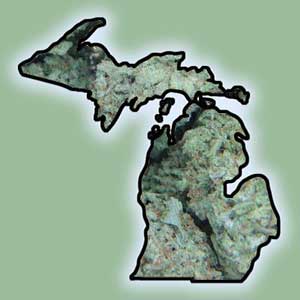 LANSING – In a statement released by Steve Arwood, director of the Department of Licensing and Regulatory Affairs, the agency has decided to accept the recommendation of the Michigan Medical Marihuana Review Panel and add post-traumatic stress disorder (PTSD) to the list of qualifying conditions for the state medical marijuana program. This is the first time a qualifying condition has been added in Michigan.
LANSING – In a statement released by Steve Arwood, director of the Department of Licensing and Regulatory Affairs, the agency has decided to accept the recommendation of the Michigan Medical Marihuana Review Panel and add post-traumatic stress disorder (PTSD) to the list of qualifying conditions for the state medical marijuana program. This is the first time a qualifying condition has been added in Michigan.
Residents in Michigan suffering from PTSD will now be allowed to treat their symptoms with medical marijuana if their doctors recommend it, starting immediately. The statement from the Department of Licensing and Regulatory Affairs can be read here: https://www.michigan.gov/documents/lara/Medical_Marihuana_PTSD_Final_Determination_Statement_031414_450457_7.pdf
“Individuals who are exposed to traumatic events can suffer from PTSD, including veterans and victims of domestic violence,” said Chris Lindsey, legislative analyst for the Marijuana Policy Project. “It can lead to severe depression, anxiety, insomnia, nightmares, flashbacks, anger, or other symptoms. In many respects, it can kick a person when he or she is already down. Thousands of victims across the country have turned to medical marijuana for help, and several studies support marijuana’s effectiveness as a treatment option. Those who suffer from PTSD in Michigan can now speak freely with their physicians to determine whether marijuana is an appropriate treatment option for them.”
Research and anecdotal evidence have shown that medical marijuana can alleviate common symptoms of PTSD, such as anxiety and traumatic memories. There are approximately 7.7 million American adults suffering from PTSD, according to the National Institute of Mental Health. Last week, the federal government gave preliminary approval to an FDA-approved study to examine the effect of vaporized marijuana as a treatment for PTSD in combat veterans.
Twenty states and Washington, D.C. allow patients with qualifying conditions to use medical marijuana with recommendations from their physicians. Of these, California, Connecticut, Delaware, Maine, Massachusetts, New Mexico, Oregon, and now Michigan allow doctors to recommend medical marijuana to patients suffering from PTSD. Additionally, when retail stores opened in Colorado on January 1 and began selling marijuana to adults, the first customer was Sean Azzariti, an Iraq war veteran with PTSD, who was previously unable to legally access marijuana because his condition was not covered by Colorado’s medical marijuana law.
Source: Marijuana Policy Project - make a donation




